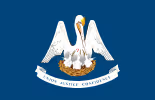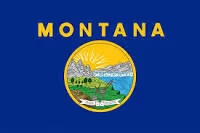Top-Rated Debt Collection Agency in Rhode Island
Efficient and Trustworthy Debt Collection in Rhode Island - Zero upfront fees, pay only when we succeed. Get your FREE Consultation or submit your claim today.

Efficient and Successful Debt Recovery with Debitura in Rhode Island
Harnessing the power of Debitura, a leading Debt Collection Agency in Rhode Island, can significantly improve your business's financial health. Renowned for its proficiency in accounts receivables management, pre-legal debt collection, and enforcement court proceedings, Debitura offers the best solutions for recovering outstanding debts. Our professional team understands Rhode Island's debt recovery laws inside out, putting us in the ideal position to offer effective remedies for your business's debt-related issues. Trust in the capability of Debitura for a stress-free and successful debt recovery process.

Comprehensive debt recovery solutions from A to Z in Rhode Island.

Data-driven, personalized debt recovery in Rhode Island

Collaborating with 500+ worldwide debt collection professionals and lawyers.

Excel in Rhode Island with an 87% debt recovery rate.
Key facts
- Debt Collection Laws: Debt collection in Rhode Island is regulated by both federal and state laws.
- Statute of Limitations: The statute of limitations for collection actions in Rhode Island is generally ten years.
- Enforcement of Foreign Judgments: Rhode Island has adopted the Uniform Enforcement of Foreign Judgments Act for enforcement.
- Bad Check Penalties: Passing a bad check is a crime in Rhode Island, subject to civil penalties.
- Post-Judgment Processes: Rhode Island provides several options for post-judgment processes, including general garnishment.
- Interest Rate Limits: Creditors may charge up to 12 percent interest on debt without an agreement, but up to 21 percent if there is an agreement.
- Late Payment Fees: Rhode Island law does not specify a maximum late fee that can be charged.
- Wage Garnishment: The maximum amount that can be withheld from a debtor’s wages is the lesser of 25% of weekly disposable earnings or the amount by which the debtor’s disposable earnings exceeds forty times the higher of either.
- Small Claims Limit: Small claims suits can be filed up to $2,500 in Rhode Island.
This guide is not legal advice and laws/rules may change; consult a qualified professional for personalized assistance. Use at your own risk.
Introduction to Debt Collection In Rhode Island
Debt collection refers to the process employed by businesses to pursue payments of debts owed by individuals or other businesses. The practice is common among creditors and can either be conducted by the internal departments of an organization or by external third-party agencies.
Three crucial entities involved in the debt collection process are the debtor, the creditor, and the debt collection agency. The debtor is the individual or business that owes money, and the creditor is the individual or business to which the money is owed. Should the debtor fail to repay the debts within the agreed time frame, the creditor might employ a debt collection agency to collect the debts on their behalf.
Stages in Debt Collection
The debt collection process can essentially be classified into three central stages - pre-legal, legal, and debt enforcement.
The pre-legal stage in debt collection involves a series of demand letters or phone calls from the creditor or their appointed collection agency reminding the debtor of the unsettled debt. This serves as a grace period for the debtor to pay off their debts before legal actions are warranted.
If the debt remains unpaid despite the efforts at the pre-legal stage, the debt collection process may advance to the legal stage. Here, the creditor or collection agency may decide to file a lawsuit against the debtor, demanding a court-ordered requirement for the debtor to pay.
The legal process may culminate in debt enforcement, where the unpaid debts may be enforced via court orders. These orders can authorize the seizure of the debtor's property, wage garnishment, or other enforcement actions, until the debt amount is recovered.
The process and principles of debt collection may vary by the state due to different local statutes and regulations. In the following sections, we will delve deeper into the specific facts about debt collection in Rhode Island, including its laws, regulations, and enforcement practices.
Debt Collection Laws In Rhode Island
In the realm of debt collection, both federal and state laws play a pivotal role. The overarching federal laws encompass the Fair Debt Collection Practices Act (FDCPA), the Fair Credit Reporting Act (FCRA), the Telephone Consumer Protection Act and several others. These regulations provide the framework within which debt collection can occur, directly influencing how agencies interact with debtors and impact their credit ratings.
Significantly, the FDCPA sets down guidelines that third-party debt collectors must adhere to when prosecuting debt recovery. It aims to promote fairness and transparency in the process, while simultaneously protecting consumers from harmful or unethical practices. Examples include prohibitions against contacting debtors at unreasonable hours, false or misleading representations, and harassment or abuse.
Diligent regulatory oversight is also provided by key federal bodies such as the Consumer Financial Protection Bureau (CFPB) and the Federal Trade Commission (FTC). These entities monitor and enforce federal laws, ensuring that debt collection actions remain within legal bounds and prioritizing the protection of consumers.
Rhode Island's Debt Collection Laws
Rhode Island's approach to debt collection is further guided by its state-specific laws. These statutory provisions interface with federal regulations to create a blended landscape of parameters for debt collection activities in the state. Despite the state's small size often resulting in a limited number of Supreme Court cases each year, the combination of state and established common laws provides a structured environment for debt collection.
One of Rhode Island's most notable features in the arena of debt recovery is its ten-year statute of limitations for collection. This rule applies to contracts, book accounts, and charge accounts, among other financial obligations. Interestingly, this statute is reset with each payment made, providing an ongoing opportunity for debt collection actions to be initiated.
Another important provision lies in its adoption of the Uniform Enforcement of Foreign Judgments Act. This policy aids the enforcement of foreign judgments, requiring certain formalities such documentation and an affidavit to be in place to action the terms of the judgment.
Consequences and Enforcement in Rhode Island
Specific repercussions exist for individuals or entities who bypass regulations or fail to honor financial obligations. For instance, issuing a bad check is considered a crime in Rhode Island, carrying both criminal charges and civil penalties. The penalties for defaulting on a check payment can include being sued for face value of the check, a penalty three times that amount, and a collection fee of $25.
Once a judgement has been secured, there are several post-judgment procedures that a creditor can leverage. Traditional supplementary process is commonly used, demanding payment from the debtor and scheduling a hearing date. In the absence of a voluntary agreement, the court takes the lead in determining the debtor's ability to pay.
In 2007, Rhode Island passed the Rhode Island Fair Debt Collection Practices Act (RIFDCPA), which further regulates debt collection. It mandates that all non-attorney debt collectors register with the state, adding another layer of protection for consumers. It also addressed the issue of "ghost writing", upholding the level of professional accountability amongst practicing attorneys.
Court System and Process Servers in Rhode Island
Rhode Island's debt collection procedure is served by a straightforward court system divided among four counties, each county having three courts. The Superior Courts handle larger claims while the District Courts manage smaller claims. Different filing fees apply to each court.
Process servers in Rhode Island, known as Constables, or state Sheriffs located at each courthouse, serve writs such as summons, wage and bank garnishments, executions, citations, and subpoenas. This provides a systematic and uniform approach to legal procedures, bolstering the overall debt collection process.
In conclusion, Rhode Island's debt collection laws reflect a well-structured interplay of federal and state regulations. With clear processes for enforcement, penalties for non-compliance, and a streamlined court system, Rhode Island strikes a balance between consumer protection and facilitating rightful debt collection.
Risk Free Debt Collection
Upload your claim and get started with our 100% no-cure-no-pay collection solution.
The Debt Collection Process In Rhode Island
Handling debt collection is a process that demands careful consideration. In Rhode Island, as is the standard across the United States, there is a basic framework through which the debt collection process advances. Let's delve into the main steps for a better understanding.
These steps include evaluating the case, executing a pre-legal or amicable phase, reviewing the case for legal considerations, legal debt collection procedures, and the enforcement of debt post-judgment. Each step is carefully designed to not only protect the rights of the creditor but also to ensure the debtor is treated fairly and does not face undue pressure.
Evaluation of the Case
The first step in the debt collection process in Rhode Island is the evaluation of the case. This primarily involves determining whether the debt is within the statute of limitations. In Rhode Island, the statute of limitations for most debts to be collected is set at ten years. If the debt is older than that, collection actions may not be initiated.
Determining the creditworthiness of the debtor, examining the existence of sufficient proof of debt, and verifying all documentation are also crucial parts of the case evaluation process.
The Amicable Phase
The creditor, after establishing the validity of the debt, moves on to what's called the amicable phase. This involves establishing contact with the debtor and attempting an amicable resolution. The creditor reaches out to the debtor through various channels, including letters, phone calls, and emails, enlightening them about the outstanding payments, the implications of non-payment, and seeking a mutually agreeable payment plan. The goal during this phase is to resolve the debt without court interference.
Evaluation for Legal Considerations
When an amicable solution isn't secured, the third step is a secondary evaluation for legal considerations. In particular, it is necessary to determine if the case is eligible for small claims court, a resourceful option for cases involving amounts up to $2,500 in Rhode Island. The small claims court is designed to simplify the legal process and provide a quicker resolution for smaller debts.
Legal Debt Collection Steps
If the debt amount is significant and not reconcilable through a direct approach, the creditor may consider taking legal action. This step often involves hiring a lawyer to handle the legal complexities of the case. If a judgement is obtained in favor of the creditor, it permits the creditor to pursue more intensive collection methods such as garnishment or property liens.
Post-Judgment Processes
After a judgement has been rendered in their favor, creditors in Rhode Island have several options for post-judgment processes. The methods of enforcement include wage garnishment or property seizure. However, wage garnishment in Rhode Island is subject to certain limitations and regulations. It is limited to either 25% of the debtor's weekly disposable earnings, or the amount by which the debtor's disposable earnings exceed forty times the higher of either.
To streamline all these steps, debt collection is governed by both federal and state laws in Rhode Island. This ensures that there are guidelines that guard against malicious practices and protect the rights of the debtor while enabling the creditor to pursue recuperation of their money in a legal manner.
Statute of Limitations in Rhode Island
The statute of limitations is a legally defined timeline within which a creditor can file a lawsuit against a debtor for unpaid debts. It plays a crucial role in debt collection, ensuring that financial claims are made within a permissible timeframe, thereby fostering fairness and timeliness in the recovery process. This limitation can vary depending on the type of debt and the governing laws of each state.
In the context of Rhode Island, the parameters designated by the statute of limitations regarding debt collection are stipulated under the R. I. Gen. Laws § 9-1-12 et seq. Violating this statute can result in the dismissal of the lawsuit, making it an important consideration for both creditors and debtors. Consequently, understanding the defined timeline for each type of debt is crucial.
Let’s examine these timelines in detail, differentiating between various forms of contractual obligations specific to the state of Rhode Island.
Written Contracts
Written contracts refer to agreements or promises documented and agreed upon in writing by both parties involved. In Rhode Island, the statute of limitations on written contracts, including promissory notes, credit card agreements, and leases, is 10 years as per R. I. Gen. Laws § 9-1-12 et seq. This means a creditor has a decade from the default date to legally seek repayment on the debt.
It's worth noting that resetting of this period can happen if partial payments are made or if the debtor acknowledges the debt in writing. In either case, the clock restarts, extending the 10-year period from the date of the last activity.
The 10-year period is substantial, posing a potential financial risk to indebted individuals for a prolonged duration. Therefore, debtors are advised to maintain a diligent stance towards repaying their debts to avoid possible legal repercussions.
Oral Contracts
Oral contracts are binding agreements agreed upon verbally by the involved parties. Despite the lack of a written record, these agreements hold legal ground. Similar to written contracts, Rhode Island’s statute of limitations entitles creditors a 10-year time frame to take legal actions to recover debt arising from oral contracts.
Establishing the existence and validity of an oral contract and determining its default date can be challenging due to the absence of tangible documentation. However, any proof of the agreement like email correspondences, witnesses or even recorded conversations could strengthen the case for the plaintiff.
Therefore, creditors are encouraged to maintain some form of documentation, while debtors should remain aware of their verbal commitments to avoid unexpected liability.
Injury Cases and Property Damage
Injury cases and property damage fall under the tort law, separate from contractual debts. The statute of limitations in Rhode Island for filing claims against injuries or property damage allows claimants a period of 3 years, and 10 years respectively.
Understanding the statute of limitations in these cases empowers victims of personal injury or property damage to pursue rightful compensation within an optimal timeframe. Early legal consultation and prompt action can result in efficient resolution and recovery.
In conclusion, the statute of limitations in Rhode Island not only regulates the period within which legal actions can be initiated, but it also fosters a more predictable and systematic approach towards debt collection. Its comprehension is crucial for both creditors and debtors to protect their respective financial interests and legal rights.
Interest Rates on Late Payments in Rhode Island
Interest rates on late payments are a critical aspect of debt collection processes and significantly impact overall debt totals and payment plans. These rates are determined by both state and national laws and can drastically affect how much a debtor ends up paying.
In Rhode Island, state laws provide guidelines regarding the permissible interest on debt. There are nuances to these laws that can impact the rate and total amount of interest accrued, requiring careful management of borrowing and repayment processes.
Several overarching principles influence the complex landscape of interest rates on late payments across the nation, and Rhode Island is no exception. Numerous exceptions, significant rulings such as Marquette National Bank v. First of Omaha Corp., and other nuances like the ability for banks to 'import' higher interest rates all play into the exact rate faced by borrowers.
Statutory Interest Rate Limits in Rhode Island
The rules around interest rates on late payments in Rhode Island are dictated by local legislation, where creditors can charge up to a 12 percent interest rate if there is no borrower agreement. This rate can increase to 21 percent when an agreement is present. However, it is essential to note that several significant exceptions apply. These include pawn brokers, licensed lenders, and all credit cards under the revolving credit clause.
These rates may exceed the 21 percent limit if a borrower's bank imports a higher rate from another state where higher limits are allowed. It's also crucial to remember that the rates can change due to legislative amendments or court decisions.
Beyond these rates, any creditor who knowingly charges unlawful interest, also referred to as usury, exposes themselves to legal consequences. These penalties include contract nullification and up to five years of imprisonment. Moreover, borrowers are entitled to recover twice the amount of usurious interest they paid.
A Brief History of Usury Laws
The term 'usury' can be traced back to the Middle Age, where it referred to any form of money lending that involved the accrual of interest. In the past, any form of interest was frowned upon and thus categorized as usury. However, the definition has evolved over time, and today, it describes excessive interest rates or deceptive lending practices.
The guidelines in Rhode Island are a perfect representation of this evolution, with state laws setting the boundaries for legal lending practices. These laws play a crucial role in balancing the needs of lenders and the rights of borrowers, making the understanding of interest rates on late payments in Rhode Island essential for residents within the state.
Understanding these rates and the legislation that governs them can have a significant impact on financial health, particularly for those facing debt collection actions. Keeping track of these rates and leveraging professional advice can ensure that one does not fall victim to excessive interest charges and the ensuing financial strain.
Late Payment Fees in Rhode Island
Debt collection in Rhode Island sometimes entails late payment fees, which are charges incurred due to failure to pay a debt by the deadline. These fees matter in debt collection as they can substantially increase the total sum due. As such, both businesses and individuals should understand how they apply.
In Rhode Island specifically, interpreting late payment fees can be challenging as the state laws do not specify a maximum late fee. This means creditors can, in theory, impose any amount, subject to the condition that it's considered reasonable.
The lack of a maximum threshold gives businesses in Rhode Island some latitude to apply accrued late fees. However, it's crucial to balance this with maintaining healthy customer relationships. Excessive late fees can lead to customer frustration and potentially, court disputes over what is deemed as 'unreasonable'.
The Rules Regarding Late Payment Fees in Rhode Island
Generally, businesses opt for a percentage-based or fixed amount late fee when an overdue payment exceeds an agreed period. However, it’s a practice that Rhode Island regulations have not specifically defined. Businesses therefore have some discretion over the size of the late payment fee, as long as it's reasonable and agreed upon with the debtor beforehand.
Moreover, Rhode Island does not necessitate a specific grace period before late fees can be charged. This indicates that legally, companies can impose late fees immediately after a payment becomes overdue. However, adopting a grace period (typically around seven days) can be perceived as a 'good will' gesture, and can positively affect debtor relationships.
In conclusion, while late payment fees can incentivize timely repayments and compensate for losses associated with late payments, they must be handled with care. It's advisable for businesses in Rhode Island to consider implementing reasonable fee structures and grace periods. This helps maintain positive customer relationships while ensuring smoother debt collection processes.
Small Claims Procedures in Rhode Island
The District Court Small Claims Docket in Rhode Island offers a relatively simple and cost-effective way for individuals and businesses to recover debts they are owed. These proceedings, governed by the Rhode Island District Court Rules of Small Claims Procedure and Rhode Island District Court Rules of Civil Procedure, allow monetary disputes up to $2,500 to be adjudicated without the necessity of a formal lawsuit.
When pursuing a debt collection in small claims court, the case must be filed in the district where either party resides or where the defendant can be found. If the plaintiff is a corporation, the case can be brought in the district where the defendant resides or can be found. The defendant, upon receipt of the claim, must file a written answer, defense, or counterclaim either before or on the date set for answering.
It should be noted that there are strict procedures for serving process in these cases. For individuals, service may be made by personal or substitute service. For corporations, process must be served by delivering to an officer, managing, or general agent, or by leaving with authorized person at corporate office or agent appointed to receive service of process.
Rhode Island Small Claims Statutes
The legal framework governing these proceedings is set out in Rhode Island General Laws §§ 10-16-1 to 10-16-16; 9-4-3; 9-4-4; 9-12-10 (appeals). These statues establish the court's jurisdiction, set out the procedural rules for filing and progressing claims, and outline the rights and obligations of the parties.
Under these laws, if a defendant's counterclaim exceeds $2,500 and the judge finds in favor of the defendant, the defendant is still permitted to file the claim in district court. This enables larger disputes to be heard under the rules and procedures appropriate to their scale and complexity.
Notably, attorneys are allowed to represent parties in small claims court, and are required for all corporations (with the exception of close corporations with assets under $1 million). This can make navigating the system easier for the parties involved.
Do you need a lawyer in small claims court?
While it is not mandatory, it is often beneficial to be represented by an attorney in small claims court. Lawyers can provide invaluable advice and assistance with understanding and interpreting the law, presenting evidence, and arguing the case. Corporate entities other than close corporations with assets under $1 million must be represented by an attorney.
Appeals are generally allowed within two days of entry of judgment, excluding Saturdays, Sundays, and legal holidays. However, if a seller or manufacturer defendant loses by default in a consumer plaintiff claim, no appeal is permitted.
It is essential, however, to remember that the small claims process is not suitable for all types of dispute. For example, the system does not permit evictions or permit jury trials. When considering the best way to pursue a debt recovery claim, it's important to understand these limitations and to seek legal advice if necessary.
Wage Garnishment in Rhode Island
As a tool for debt recovery, wage garnishment is an effective legally sanctioned instrument that is quite common in Rhode Island. Wage garnishment or attachment of earnings is a court order directing an employer to withhold a specific sum from the debtor's wages and transfer that money directly to the creditor until the debt is fully paid.
Wage garnishment is typically employed when other attempts to recover the debt have failed. Although it may appear harsh, it ensures that creditors receive the money they are due, while it also provides measures to protect a portion of the debtor's income so as to not inflict undue hardship.
The process involves obtaining a judgment from the courts allowing for the debt to be paid via the debtor's earnings. Subsequently, certain exemptions based on the debtor's circumstances may be applied to ensure that the individual isn't left without necessary means of livelihood.
Specific Rules for Wage Garnishment in Rhode Island
In Rhode Island, debt collection laws have clearly defined the processes and extents of wage garnishment. The laws ensure that a balance is maintained between the rights of creditors to collect their money and the debtor's right to maintain a livelihood.
The maximum amount that can legally be withheld from a debtor's wages in Rhode Island is the lesser of 25% of weekly disposable earnings, or the amount by which the debtor's disposable earnings exceeds forty (40) times the higher of either the federal minimum hourly wage or the state minimum hourly wage. This is generally consistent with federal wage garnishment laws and is aimed at ensuring that the debtor is able to meet basic living expenses.
For disposable earnings under the thresholds defined, wage garnishment is limited or may even be prohibited. It's important to note that certain types of income are exempt from wage garnishment in Rhode Island altogether, such as Social Security, unemployment benefits, and other federally designated types of income.
In conclusion, while wage garnishment is an effective tool for debt recovery in Rhode Island, its use is governed by specific rules designed to protect both the debtor and the creditor. Having a clear understanding of these rules can aid the smooth recovery of debt, while negotiating fair terms that acknowledge the debtor's rights and ability to pay.
.webp)
.png)
.avif)
.avif)
.avif)
.avif)
.avif)
.avif)
.avif)

.avif)

.avif)






.svg.avif)




.avif)
.avif)

.avif)
.avif)



.avif)



.svg.avif)

.avif)

.avif)
.avif)
.avif)
.avif)
.avif)
.avif)
.avif)
.avif)
.avif)
.avif)
.avif)
.svg%20(1).avif)
.svg)

